In the context of restraint prevention, the SPDC hospital department of San Filippo Neri of Asl Roma 1, in collaboration with the International Foundation Don Luigi Di Liegro, proposes a pilot project aimed at building a network pathway against isolation that can help hospitalized people better cope with an inherently complex situation.
The project includes the activation of a process that is not exclusively medical but also social and supports relational skills and personal effectiveness, respecting the condition of fragility of the participants and enhancing their resources. Through art-mediated communication (music, painting, manual work objects, writing and reading, body movement, etc.), exchange becomes possible, and the professional acts as a mediator of interpersonal communication in the group.
The content and form of the workshops were designed and chosen to promote socialization among participants, listening, and mutual recognition, respecting each individual's space and the free choice not to participate or simply to observe, depending on the participants' feelings. The aim is to foster an atmosphere of harmony and mutual acceptance as much as possible.
Each meeting is complete in itself, considering that the composition of the group is continuously changing. Users are given the freedom to participate or not, as they choose, each time.
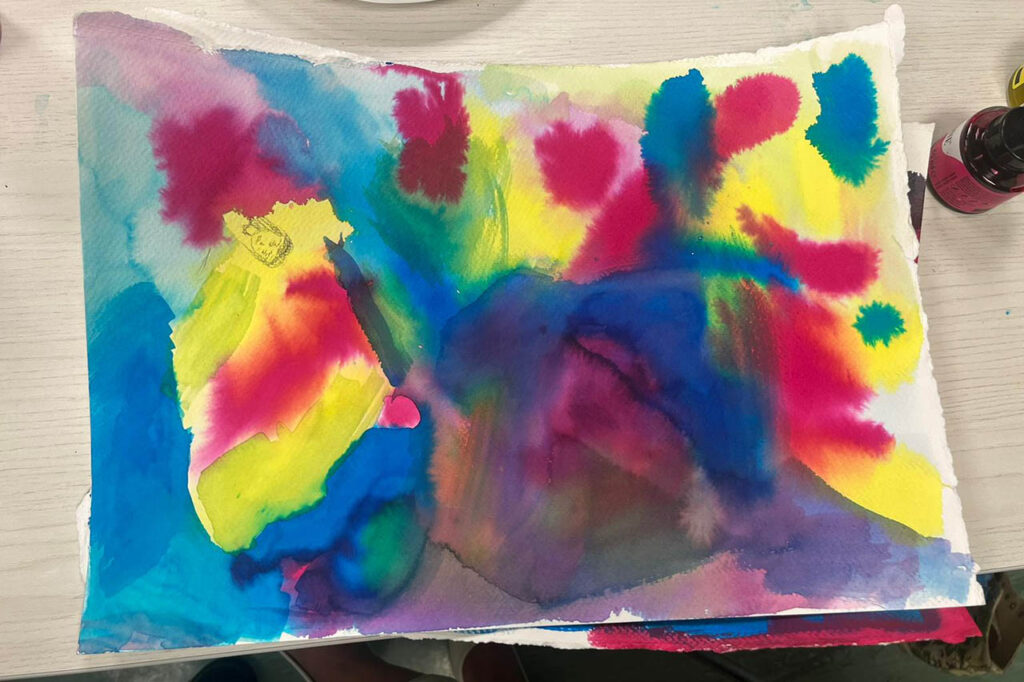
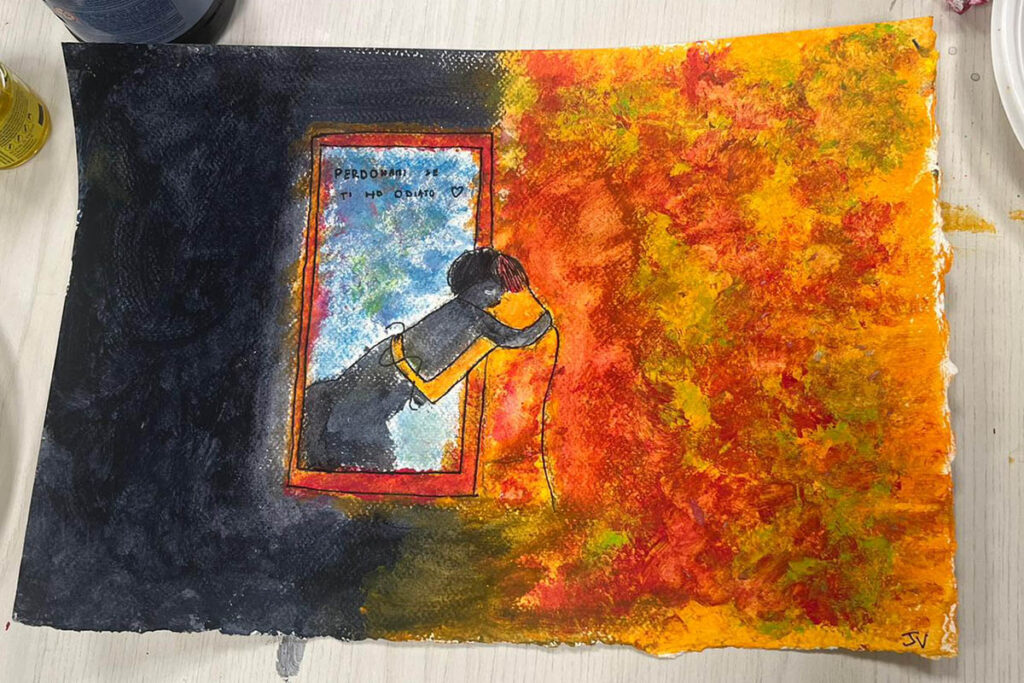
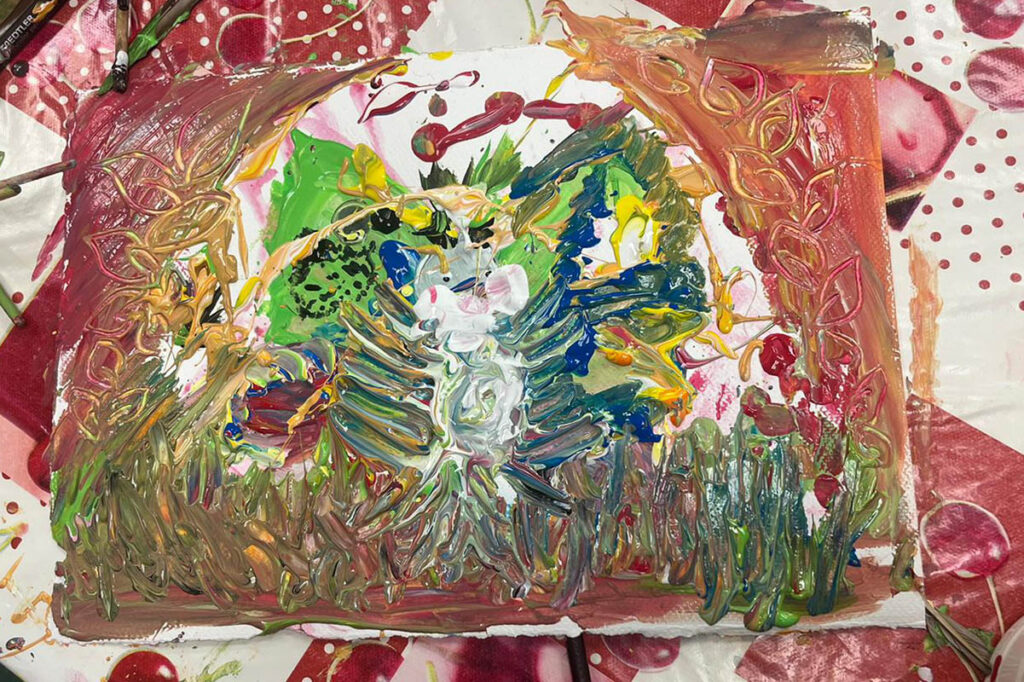


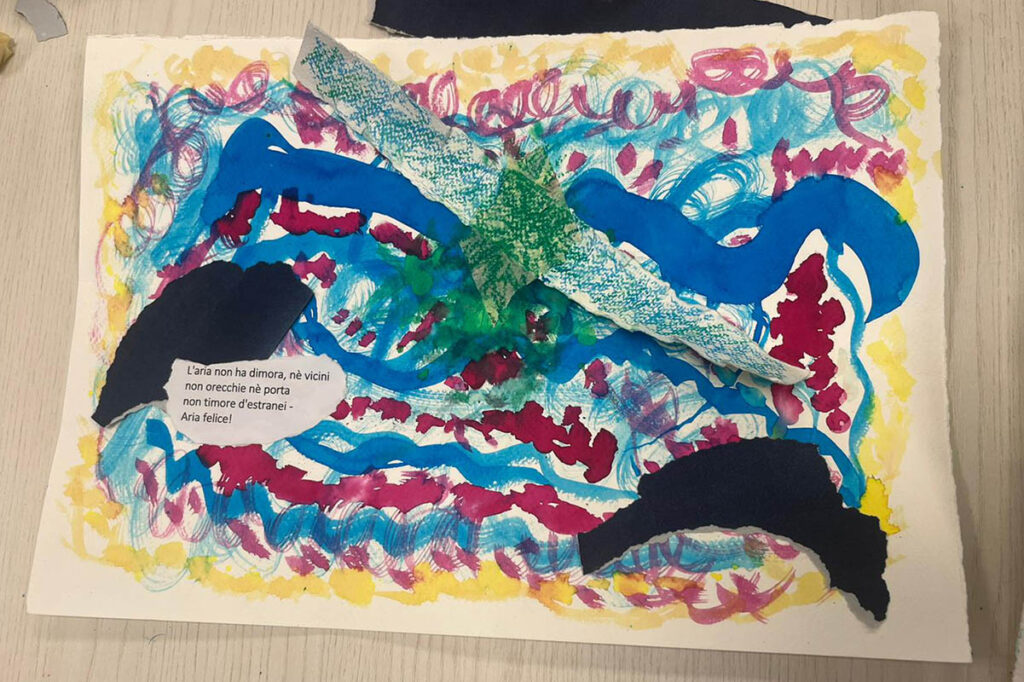
The Art4Me project connects mental health and art and aims to create a unique opportunity to provide a new platform for sharing knowledge across borders and stakeholders, and a path for better citizen empowerment with or at risk of having mental health problems. A long series of new tools is therefore needed to address mental health. While art and creative expression have been a central element of European culture for millennia, the use of art as a tool for mental health has been poorly mapped and experiences often not shared.
The project aims to:
In order to prevent isolation and social marginalization, the project proposes the activation of a listening and assistance service in the area, which provides information on mental health services, orients users and supports them in defining a personalized project with territorial services.
To raise awareness among citizens about mental health, the project organizes training courses, information and annual conferences on topics such as Recovery and addictions. The training objectives include the creation of a group of volunteers to facilitate the social inclusion and therapeutic path of people with mental distress through socialization workshops, such as theatre, music, photography and art therapy.
In order to combat the loneliness of family members of people with mental health problems, the project promotes self-help groups with weekly meetings and monthly supervision by professionals, such as psychiatrists and psychologists, to provide supportive support and share experiences.
The project is conceived following a Recovery approach, which aims to give users an active role again, transforming them from passive recipients to protagonists involved in their own choices and committed to fully developing their potential.
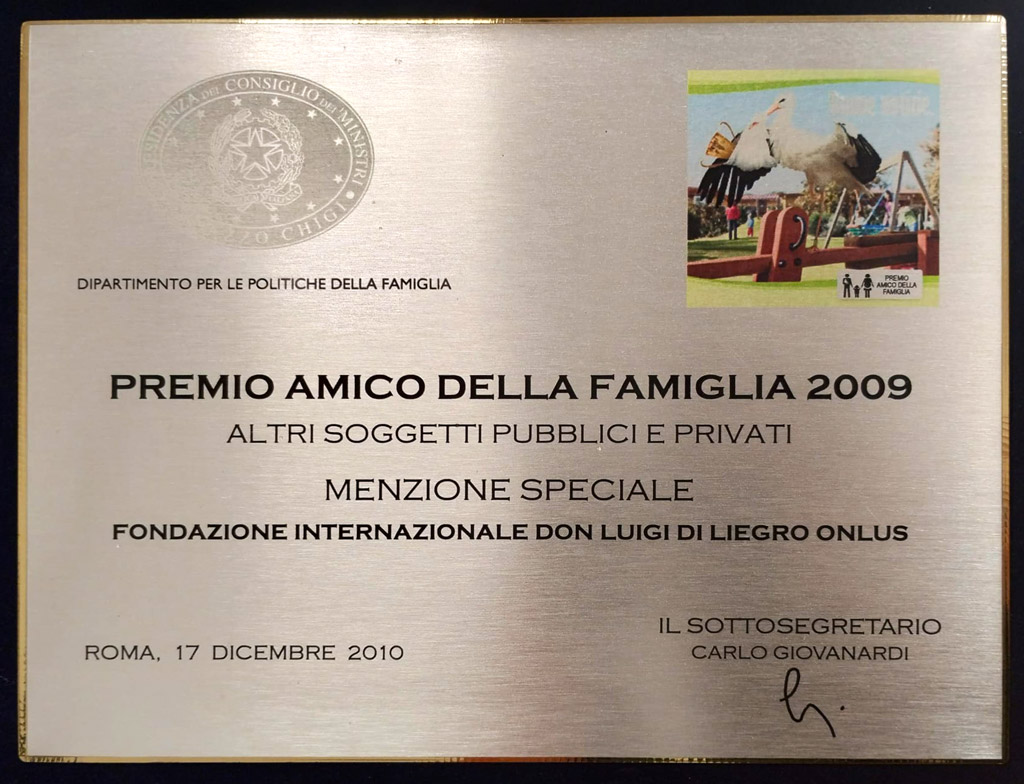
The Di Liegro Foundation has been operating in the field of mental health since 2006, collaborating with public and private institutions in the implementation of projects, activities and research aimed at promoting psychosocial well-being, the prevention of mental distress and the dissemination of culture and knowledge of mental health. Over time, this commitment has focused in particular on youthful distress, organizing thematic training courses, emotional literacy projects and training courses peer education in schools, research activities.
The observation that mental health in the young age group, a crucial moment in development and for the onset of possible developmental difficulties, is in fact a topic of great importance and on which it is necessary to act in terms of information, protection and prevention, was further validated by2018 edition of World Mental Health Day, dedicated to “young people and mental health in a changing world”.
In fact, data from the World Health Organization underline that 10-20% of children and adolescents worldwide suffer from depressive disorders and that neuro-psychiatric pathologies are the main cause of disability in young people in all WHO Regions. One in six adolescents aged 10-19 suffers from mental disorders. Furthermore, 50% problems begin before the age of 14, but most cases go undetected and untreated. And again: suicide is the third cause of death among young people between 15 and 19 years old.
There is a real risk that mental health problems developed during adolescence may continue into adulthood or even become chronic (WHO, 2005).
From these considerations comes the Foundation's commitment to paying particular attention to youth age group. The actions undertaken have the aim of strengthening, through direct and indirect interventions, protective factors so as to prevent the development of mental health problems.
Projects and initiatives of the Di Liegro Foundation for young people:
Young Europeans they are faced with increasingly difficult conditions on a daily basis: from complicated access to the world of work to parents' expectations, up to the paradox of the internet and social media, which connect and separate at the same time.
A greater number of young people exhibits symptoms of mental distress, such as high stress, anxiety, depression, addictions. making it harder to build your life plan and find your place in the world.
For this reason, the European Union promoted a new Strategy on the topic in 2018. One of the objectives identified concerns "Mental health and well-being", aimed at promoting the social inclusion of all young people, improving their mental well-being and eliminating stigmatization towards them.
This project fits into this framework by investing in training and recognition of the skills of employees Youth Workers who have the task of guide and support young people in their development personal, social and educational helping them to achieve and express their full potential in society. Youth workers, by learning a series of skills ranging from emotional intelligence to self-awareness, to time management and coping with external pressure, play a key role, with teachers and other professionals, in providing training for young people on mental health problems and on building emotions and dealing with mental health.
Serious mental disorders that can compromise parenting ability. In the research conducted, children frequently report experiences of neglect and abuse, feelings of fear or danger due to the psychiatric symptoms of their parents for whom they are "forced" to become caregivers.
The data and research on this condition are fragmented and too often incomplete, but they provide a dramatic picture. In 2004 (Nicholson et al.) reported that the 67% of women and the 75% of men experiencing conditions of serious mental distress (including schizophrenia, bipolar disorders, severe depression) are parents.
Furthermore, the interaction between genetics and environment in combination with high exposure to emotional stress represents a risk factor for children (both minors and adults) to develop psychiatric problems in the future.
Hence the need to raise awareness and inform civil society on the topic and to focus on concrete tools to support the children of parents with mental health problems. The project therefore worked, thanks to the collaboration of partners from different countries (Belgium, Greece, Italy and Turkey), on sharing good practices on advocacy strategies and promoting a change in policies at national and EU level. The main recipients of the information and awareness actions, in addition to mental health professionals, were family caregivers: to orient them to the support services of mental health services and to promote the exchange of experiences and mutual help.
The project was based on the belief that a more welcoming and inclusive society responds more effectively to the many critical issues arising from mental distress. Work, in this sense, represents a fundamental piece in everyone's life and an essential step towards building an autonomous and more fulfilling life.
Over the two years of the project's life, the people involved were included in modular paths which included various actions including: orientation and assessment of skills; empowerment interventions, self-promotion, social inclusion; accompaniment, tutoring and exploration of training and work opportunities; psychological support; family support and counseling.
An individual project was developed for each person taken care of, starting from each person's skills and resources. Comparison and dialogue within professionalizing and expressive workshops was one of the strong elements of the project.
Over 60% of the participants took part in training internships, which in some cases were transformed into actual employment contracts.
From the experience of the "Getting in motion" project, various initiatives on workplace inclusion have arisen over time, also thanks to information and awareness-raising actions in the public and private world on mental health problems.
The Project is recognized at European level within the Erasmus+ programme, through which the European Commission wants to encourage joint work between partners from different countries, to build an integrated path towards a quality of life that facilitates well-being and social inclusion , against stigma and marginalization.
A strategic program for the European Community, if we consider that mental disorders affect approximately 27% (83m.) of European citizens annually (European Social Work, 2013).
HERO - sharing the know-how of various EU countries relating to the social inclusion of people with serious mental distress, training methods and consolidated practice in the housing sector - aims to study what makes a place or which makes it a source of well-being, not only for users, but also for their family members, operators and citizens. Places that must be interconnected, permeable, habitable and modifiable. Where everyone can feel welcomed as a person, not characterized or stigmatized. Where everyone can recognize that mental health (and not only) is a heritage that concerns everyone and can be achieved if everyone is involved.
By housing we mean a process that favors the transition from the helping relationship to social inclusion. Numerous studies have shown how "community-based" services obtain better results in terms of treatment compliance, clinical symptoms, quality of life, housing stability and rehabilitation, compared to other models of care (Braun P. et al. 1981 ; Conway M. et al. 1994; Bond et al. 2001). At the same time, housing understood in this way is connected to the safeguarding of rights (citizenship, reduction of stigma, etc.), the rationalization of public spending (offering an alternative to the costs of excessive recourse to institutionalisation) and the development of an active and competent citizenry.
The project, aimed mainly at people over 40 residing in the city of Rome who have lost their jobs, introduced actions that have been taken up over the years in various locations, both at national level and in the European Community.
Supply emotional and psychological support, intervene on recovery and enhancement of professionalism and skills, activate networks and resources for re-entry into the job market, the cornerstones of the project are still strategic interventions for the employment inclusion of people with fragility.
Unfortunately, this is an ever-present topic if you consider that the unemployment rate in Italy today (15-64 years) is 7.6%, the inactivity rate - relating to people who have stopped looking for work - is 33.5%; these data for women are 8.7% and 42.7% respectively. If we observe the situation only in the South, the data are all worse: unemployment 13.9%, inactivity 44.2%, female 16.1%, youth 35% (Istat, June 2023).
Among the tools successfully tested by the project, to combat the state of poverty and unemployment, we highlight: orientation and relational reactivation meetings; the welcome, support and coaching service; the provision of an income support "Grant". Individual paths which, combined with group work, accompanied the development of entrepreneurial skills and abilities of the participants and actively contributed to the recovery of psychological balance and the prevention of forms of serious mental distress.
All the actions implemented to date represent good practices that can be replicated with their intervention model.
The request takes shape within the network of families who are linked to the Liegro Foundation, from which the desire to become protagonists in developing and implementing projects in order to create employment for people with mental health problems.
The Di Liegro Foundation has positioned itself as a facilitator and promoter of this process of "empowerment", making two professionals with specific skills in training and social services available to the group of family members, as well as the premises and organisation.
The process was launched on 18 April 2015, European Patient Rights Day.
---
A structured path is followed which includes the following steps:
---
In the second phase of the path it is planned to divide the group into subgroups organized by areas of expertise and interest that can meet specific objectives and carry out specific thematic insights.
To be concrete and operational, the values will be developed in some work areas: